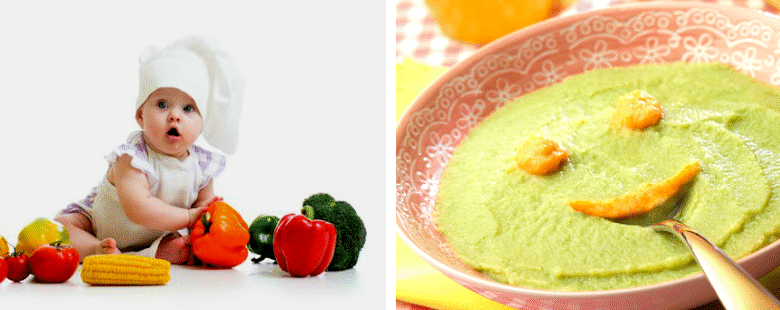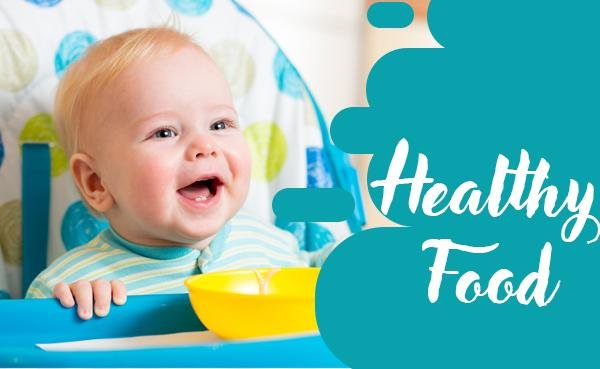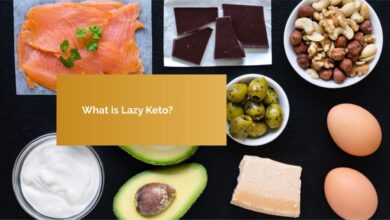
Pregnancy is one of life’s most amazing journeys — but it also comes with a lot of questions, especially around food. How to have a healthy baby, What should you eat? How can you be sure your baby is getting the nutrients they need? And how can you manage cravings without sacrificing health
Best Foods for Healthy Baby Development During Pregnancy
-
Introduction: Why Nutrition Matters During Pregnancy
-
Understanding the Basics of Baby Development
-
The Role of Macronutrients in Pregnancy(Healthy Baby)
-
Carbohydrates: Energy for Mom and Baby
-
Proteins: Building Blocks of Baby’s Body
-
Healthy Fats: Brain and Organ Development
-
-
Essential Vitamins and Minerals for Baby Growth
-
Folic Acid: Preventing Neural Tube Defects
-
Iron: Fighting Fatigue and Supporting Blood Flow
-
Calcium: Building Strong Bones and Teeth
-
Vitamin D: Boosting Immunity and Bone Health
-
Omega-3 Fatty Acids: Brain and Eye Development
-
-
Top Superfoods for Healthy Baby Development
-
Leafy Greens: Spinach, Kale, and Swiss Chard
-
Berries: Antioxidants for Growth and Immunity
-
Nuts and Seeds: Healthy Fats and Protein
-
Eggs: Nutrient-Dense Powerhouses
-
Dairy Products: Calcium and Protein Sources(Healthy Baby)
-
Whole Grains: Sustained Energy and Fiber
-
Legumes: Plant-Based Protein and Fiber
-
Avocado: Healthy Fats and Vitamins
-
-
Hydration: Why Water is Essential During Pregnancy(Healthy Baby)
-
Foods to Avoid for Baby’s Safety and Development
-
Raw or Undercooked Meats and Eggs
-
High Mercury Fish
-
Unpasteurized Dairy
-
Excess Caffeine and Artificial Sweeteners
-
-
Managing Cravings and Nutrition Balance
-
Special Dietary Considerations: Vegan, Vegetarian, and Allergies
-
Meal Planning Tips for Pregnant Moms
-
How Nutrition Affects Pregnancy Outcomes
-
The Link Between Healthy Eating and Reduced Risk of Obesity in Pregnancy
-
Latest Research on Nutrition and Baby Development
-
Supplements: When and Why They’re Needed
-
Conclusion: Nourishing Your Baby from the Inside Out
-
FAQs
Best Foods for Healthy Baby Development During Pregnancy
Pregnancy is one of life’s most amazing journeys — but it also comes with a lot of questions, especially around food. What should you eat? How can you be sure your baby is getting the nutrients they need? And how can you manage cravings without sacrificing health? If you’re pregnant or planning to be, you’re probably asking these exact questions.
Good news! This post breaks down everything you need to know about the best foods for healthy baby development during pregnancy. We’ll explore the key nutrients, must-have foods, what to avoid, and practical tips to help you nourish yourself and your baby from day one. Let’s jump right in.
Why Nutrition Matters During Pregnancy
Imagine growing a tiny human inside your body — that’s what pregnancy is all about. Your baby is developing at lightning speed, forming vital organs, brain cells, bones, and muscles. And here’s the kicker: your body provides all the nutrients your baby needs through your diet and reserves.
So, what you eat isn’t just about your health — it directly influences your baby’s growth and development. Eating nutrient-rich foods can help reduce risks like low birth weight, birth defects, premature labor, and even long-term health conditions for your child.
For moms-to-be, proper nutrition also means better energy, improved mood, and a smoother pregnancy overall. It’s a win-win.
Understanding the Basics of Baby Development
Your baby’s development happens in stages, and different nutrients become critical at different times:
- First trimester: Formation of the brain, spinal cord, heart, and organs begins. Nutrients like folic acid and protein are crucial here.
- Second trimester: Growth of organs, bones, muscles, and senses like hearing and eyesight. Calcium, iron, and vitamins play a big role.
- Third trimester: Rapid weight gain, fat storage, brain and lung development. Healthy fats, vitamin D, and protein become important.
Even before you feel those first kicks, your baby’s body is busy building foundations. Feeding yourself well from the very start ensures these processes go smoothly.
The Role of Macronutrients in Pregnancy(Healthy Baby)
Macronutrients are the big three: carbohydrates, proteins, and fats. Each has a special role during pregnancy.
Carbohydrates: Your Energy Fuel
Carbs are the fuel that keeps your engine running. Pregnancy demands more energy — your body works overtime to support two lives! Opt for complex carbohydrates like whole grains, fruits, and veggies rather than simple sugars that cause blood sugar spikes.
Think oatmeal for breakfast, brown rice with lunch, or quinoa salad for dinner. These keep your energy steady and provide fiber to prevent pregnancy constipation.
Proteins: Building Blocks for Baby
Protein is the superhero for your baby’s growth. Every cell, muscle, and organ depends on protein for formation and repair. You need about 70 grams a day during pregnancy — roughly the amount in three eggs and a handful of nuts.
Good sources include lean meats, poultry, fish, eggs, dairy, beans, lentils, nuts, and tofu. Vegetarians and vegans should pay close attention to combining protein sources to get all essential amino acids.
Healthy Fats: Brain and Organ Builders(Healthy Baby)
Fats often get a bad rap, but during pregnancy, healthy fats are essential — especially omega-3 fatty acids. They support your baby’s brain, eyes, and nervous system development.
Sources like salmon, walnuts, chia seeds, flaxseeds, and avocados provide these good fats. Avoid trans fats and limit saturated fats found in fried or processed foods.
Essential Vitamins and Minerals for Baby Growth
Beyond macros, micronutrients (vitamins and minerals) are the tiny but mighty players that ensure your baby develops perfectly.
Folic Acid: The Pregnancy Superstar
Folic acid helps prevent neural tube defects — serious birth defects of the brain and spine. It’s critical before conception and during early pregnancy when your baby’s neural tube is closing (around week 4).
You’ll find folic acid in leafy greens (spinach, kale), citrus fruits, beans, and fortified cereals. The CDC recommends all women of childbearing age take at least 400 micrograms daily. Learn more about folic acid here.
Iron: Keeping You and Baby Energized(Healthy Baby)
Pregnancy increases your blood volume by nearly 50%, meaning you need more iron to produce enough hemoglobin to carry oxygen. Iron deficiency causes fatigue and increases preterm birth risks.
Rich iron sources include red meat, poultry, spinach, lentils, and iron-fortified cereals. Pair plant-based iron with vitamin C-rich foods (like oranges or strawberries) to boost absorption.
Calcium: Building Baby’s Bones and Teeth
Calcium helps your baby’s bones, teeth, heart, nerves, and muscles develop properly. If you don’t get enough, your body will pull calcium from your bones to supply the baby, risking your bone health.
Aim for 1,000 mg daily through milk, yogurt, cheese, tofu, and leafy greens.
Vitamin D: Sunshine and Bone Health
Vitamin D works hand-in-hand with calcium, aiding bone formation and supporting immune function. Limited sun exposure and certain skin tones may put some women at risk of deficiency.
Fatty fish like salmon, fortified milk, and supplements can help maintain levels.
Omega-3 Fatty Acids: Brain and Eye Development
Specifically, DHA (docosahexaenoic acid) supports your baby’s brain and retina development. Most prenatal vitamins include DHA, but eating fish low in mercury like salmon or sardines is beneficial.
Top Superfoods for Healthy Baby Development
Want a shopping list that’s packed with pregnancy power? Here’s a rundown of some of the best foods for you and your baby.
Leafy Greens: Nutrient Powerhouses
Spinach, kale, and Swiss chard are loaded with folate, iron, calcium, and vitamins A and C. They’re versatile too — add to smoothies, soups, or as a side.
Berries: Antioxidant Boosters
Blueberries, raspberries, and strawberries offer antioxidants that protect your baby’s developing cells from damage. Plus, they taste delicious!
Nuts and Seeds: Protein and Healthy Fats
Walnuts, almonds, chia seeds, and flaxseeds provide protein, fiber, omega-3s, and minerals like magnesium.
Eggs: Nature’s Multivitamin
Eggs contain protein, choline (critical for brain development), vitamin D, and iron. Enjoy them boiled, scrambled, or in omelets.
Dairy Products: Bone Builders
Milk, yogurt, and cheese provide calcium, protein, and vitamin D. Choose low-fat or full-fat based on your preferences and nutritional needs.
Whole Grains: Steady Energy
Brown rice, oats, barley, quinoa, and whole wheat bread provide complex carbs and fiber, which supports digestion and prevents constipation.
Legumes: Plant-Based Protein and Fiber
Beans, lentils, chickpeas, and peas are budget-friendly and rich in protein, iron, and fiber. Add them to salads, stews, or make homemade hummus.
Avocado: Creamy and Nutritious
Avocados are packed with healthy monounsaturated fats, fiber, folate, potassium, and vitamins B and C. Mash on toast or blend into smoothies.
Hydration: Why Water is Essential During Pregnancy
Water doesn’t get the credit it deserves! Staying hydrated helps carry nutrients to your baby, supports digestion, regulates temperature, and reduces swelling.
Pregnant women should aim for at least 8-10 glasses of water daily, more if you’re active or live in a hot climate. Herbal teas and water-rich fruits like watermelon can also contribute.
Foods to Avoid for Baby’s Safety and Development(Healthy Baby)
Some foods carry risks during pregnancy and are best avoided:
- Raw or Undercooked Meats and Eggs: Risk of listeria and salmonella infections. Always cook meats thoroughly.
- High Mercury Fish: Shark, swordfish, king mackerel, and tilefish can harm the baby’s nervous system.
- Unpasteurized Dairy: Can contain harmful bacteria like listeria. Choose pasteurized products.
- Excess Caffeine: Limit caffeine to under 200 mg per day (about one 12-ounce coffee) to avoid risks of miscarriage or low birth weight.
- Artificial Sweeteners and Processed Foods: Some studies suggest avoiding high amounts of aspartame or sucralose, plus processed foods are often low in nutrients and high in unhealthy fats and sugars.
Managing Cravings and Nutrition Balance(Healthy Baby)
Pregnancy cravings are perfectly normal and sometimes intense. The trick is to listen to your body but find healthy swaps. Want sweets? Fresh fruit with a drizzle of honey or yogurt with berries can satisfy that sweet tooth without the sugar crash.
If you crave salty or crunchy snacks, try nuts or air-popped popcorn instead of chips. And if you really want that occasional treat, don’t stress — moderation is key.
Special Dietary Considerations: Vegan, Vegetarian, and Allergies(Healthy Baby)
For those following vegan or vegetarian diets, pregnancy nutrition requires a bit of extra planning to ensure adequate protein, iron, vitamin B12, and omega-3 intake.
- Protein: Beans, lentils, tofu, tempeh, nuts, and seeds.
- Iron: Combine plant sources with vitamin C-rich foods to boost absorption.
- Vitamin B12: Found mainly in animal products; consider fortified cereals or supplements.
- Omega-3s: Algal oil supplements are a vegan-friendly DHA source.
Allergy sufferers should work closely with their healthcare provider to avoid trigger foods while maintaining a nutrient-rich diet.
Meal Planning Tips for Pregnant Moms
Planning meals ahead can relieve stress and help maintain a balanced diet. Here are some practical tips:
- Batch cook: Prepare soups, stews, and casseroles in advance and freeze in portions.
- Keep snacks handy: Nuts, fruits, yogurt, and whole grain crackers are great grab-and-go options.(Healthy Baby)
- Mix colors: Aim to fill half your plate with colorful fruits and vegetables for variety.
- Balance macros: Include protein, healthy fats, and complex carbs in every meal to keep you full and energized.
How Nutrition Affects Pregnancy Outcomes(Healthy Baby)
Research shows a strong link between maternal nutrition and pregnancy outcomes. Poor nutrition can increase the risk of:
- Preterm birth
- Low birth weight
- Neural tube defects
- Gestational diabetes
- Preeclampsia(Healthy Baby)
On the other hand, balanced nutrition supports fetal growth, reduces complications, and promotes maternal well-being.
The Link Between Healthy Eating and Reduced Risk of Obesity in Pregnancy
Obesity during pregnancy increases risks for gestational diabetes, hypertension, and complications during delivery. Eating nutrient-dense foods rather than empty calories helps manage healthy weight gain and supports better long-term health for both mom and baby.(Healthy Baby)
A diet rich in whole foods also reduces the likelihood of your child developing obesity later in life by promoting healthy metabolic programming during fetal development.
Latest Research on Nutrition and Baby Development(Healthy Baby)
Recent studies emphasize the importance of maternal diet on epigenetics — how your baby’s genes are expressed. For example, sufficient omega-3 intake correlates with improved cognitive skills, while folate and vitamin D deficiencies link to higher risks of developmental disorders.
Nutrition during pregnancy isn’t just about preventing deficiencies — it shapes your child’s lifelong health trajectory. Check out current research updates here.
Supplements: When and Why They’re Needed(Healthy Baby)
Even with a great diet, prenatal supplements fill essential gaps — particularly folic acid, iron, and DHA. Some women need extra vitamin D or calcium supplements based on blood tests or dietary intake.
Always discuss supplements with your healthcare provider to tailor them to your needs and avoid excessive intake.
Read Also Healthy Eating Tips for Pregnant Women
Conclusion: Nourishing Your Baby from the Inside Out(Healthy Baby)
Pregnancy nutrition isn’t about perfection — it’s about consistency, balance, and nourishing both your body and your growing baby. Prioritize whole, nutrient-rich foods like leafy greens, lean proteins, healthy fats, and whole grains. Stay hydrated, manage cravings thoughtfully, and avoid risky foods.
Remember: every healthy bite you take supports your baby’s future health and development. You’re not just eating for two — you’re setting the foundation for a lifetime of well-being.
FAQs
1. Can I eat fish during pregnancy, and which ones are safe?(Healthy Baby)
Absolutely! Fish is a great source of DHA and protein. Stick to low-mercury options like salmon, sardines, trout, and anchovies. Avoid shark, swordfish, king mackerel, and tilefish.
2. How much folic acid should I take during pregnancy?
Aim for 400-800 micrograms daily starting before conception and through the first trimester to prevent neural tube defects. Many prenatal vitamins contain this amount.(Healthy Baby)
3. Are prenatal vitamins necessary if I eat a balanced diet?
Prenatal vitamins help ensure you meet nutrient needs, especially folic acid, iron, and DHA, which are hard to get enough of from diet alone. Talk to your doctor about the best options.
4. What if I have food allergies — how can I get enough nutrients?
Work with your healthcare provider to identify safe alternatives and possibly supplements to avoid deficiencies while preventing allergic reactions.
5. Can eating healthy during pregnancy prevent my baby from becoming obese later in life?(Healthy Baby)
Eating nutrient-rich foods supports healthy fetal development and can reduce the risk of metabolic diseases and obesity later by positively influencing gene expression and metabolism.






One Comment